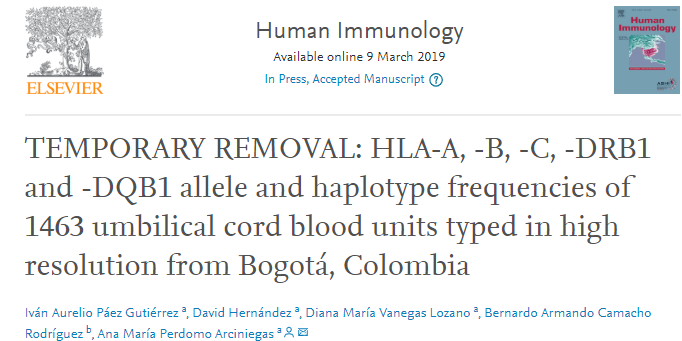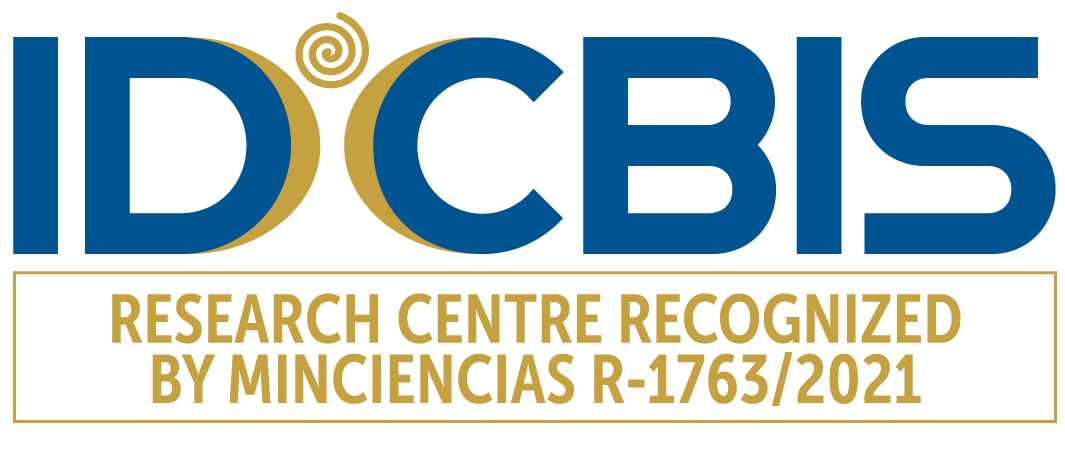Investigation team of the Public Cord Blood Bank IDCBIS publishes an important article in the scientific journal Human Immunology.

The investigation team of the Public Cord Blood Bank IDCBIS reveals frequencies of genes of the population of Bogota donors important in the compatibility in transplants of blood-forming cells, this was done through the study titled HLA -A, -B, -C, -DRB1 and –DQB1 allele and haplotype frequencies of 1463 umbilical cord blood units typed in high resolution from Bogotá, Colombia, which will appear in the important scientific journal Human Immunology member of the American Society of Histocompatibility and Immunogenetics.
Dr. Ana María Perdomo led the research team that carried out the study through which the frequencies of the HLA (Human Leukocyte Antigen) genetic variants of 1463 umbilical cord blood units stored for unrelated transplantation (without family relationship) were calculated. This means a representative sample of the HLA genes of Colombian children, which is immunologically determinant for the eventual transplantation of umbilical cord blood units.
With the statistical data presented in the study, possible associations between the different HLA variants can be inferred, which is useful for blood-forming cell donor registries in the world, to predict possible compatibilities with patients who have similar genotypes, including the possibility of finding a donor in our country. When there is compatibility between donors and patients, rejection at the time of receiving a transplant is avoided.
First Colombian population study typed with five DNA characteristics
Through the collection of more than 9,300 cord blood units since 2014, with 1666 made available for transplantation by the IDCBIS Public Cord Blood Bank, it has been possible to identify the HLAs corresponding to the 1463 units.
Typing is the process through which HLA identification is made, which was performed on each umbilical cord blood unit. This is the first study that takes into account five DNA characteristics in the Colombian population in order to obtain relevant information for transplants.
The study published in the scientific journal Human Immunology allows an approach to the most frequent variants in the genes present in the HLA in the Colombian population. "Knowing more about the genetic characteristics in high resolution of our population, we can contribute to donor search strategies, as well as make transplant processes increase their chances of success in patients who require it," says Dr. Ana Maria Perdomo, IDCBIS researcher.
The Public Cord Blood Bank IDCBIS, linked to the Health Sector of the Capital District, is in charge of selecting donors, as well as collecting, processing, analyzing, storing, typing and distributing umbilical cord blood units, which are used for the treatment of different diseases that affect the blood, immune system, metabolism or bone marrow, especially in underage patients.





